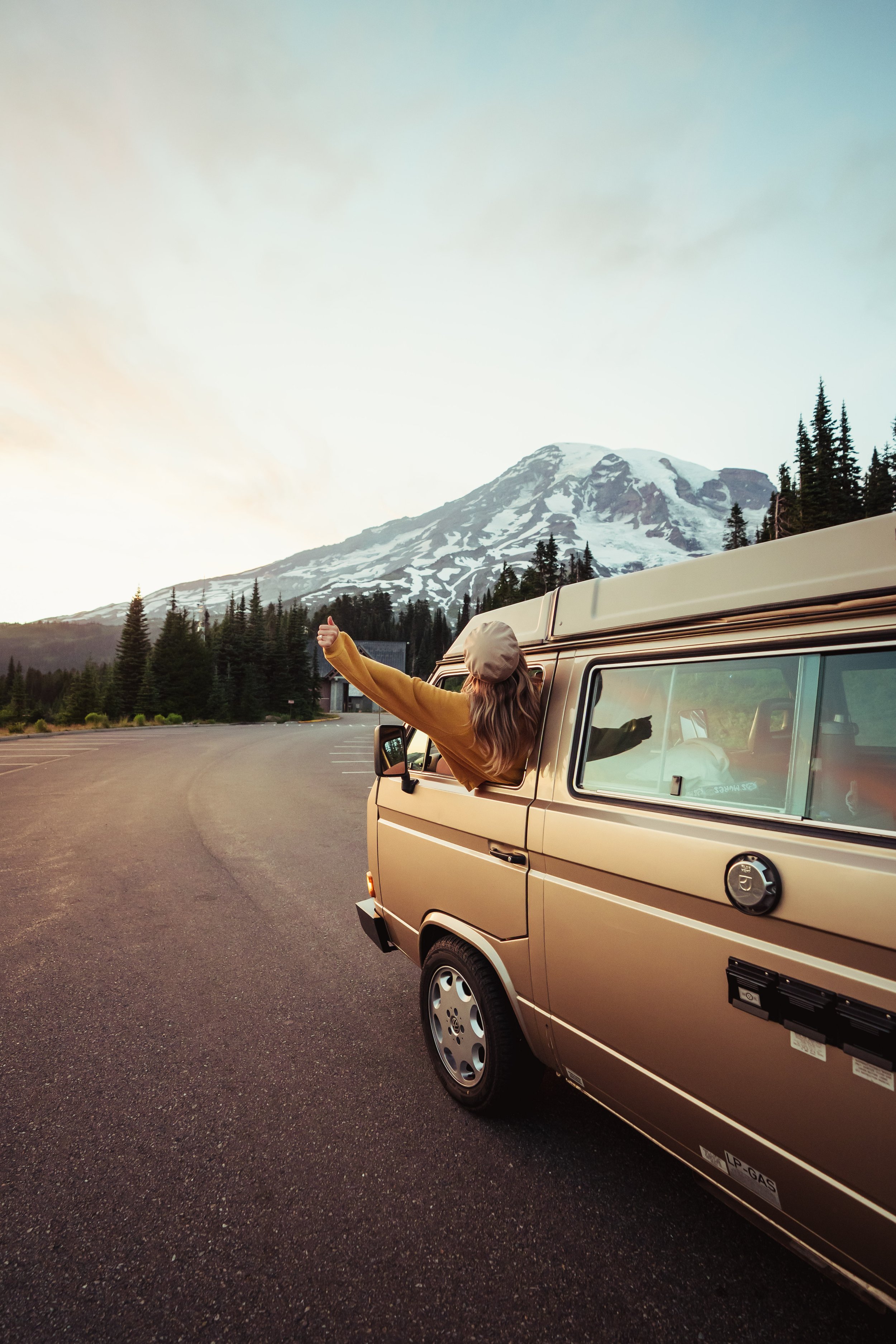WOMEN SOLO TRAVEL SERIES: FEELING SAFE
9 Tips to Camp with Confidence
If you’re new to solo camping, it can feel daunting to figure out the logistics. What do I pack? Where do I go? How do I prepare? And most importantly—how do I feel safe as a woman camping solo? We break down these challenges to help you get out there safely, comfortably, and confidently.
#1 Go where the crowds are
While we love off-the-beaten-path places and the solitude of uncrowded landscapes, for your first solo camping trip, opt for popular destinations. Going to “hot spots” where there are lots of other people can provide peace of mind that a helping hand is nearby. National parks, state parks, and places that make it on top 10 lists are generally where you’ll find lots of folks. Check out sites like recreation.gov for a list of campgrounds on our public lands. As you become more comfortable camping solo, you can dive into those middle of the wilderness spots. Until then, go where the crowds are.
#2 Start local
A great recommendation for those camping with an infant, we also love this tip for solo female travelers. When starting out, pick camping spots closer to home. Maybe that’s the nearby state park or the Hipcamp an hour away. Selecting a place that allows you to get home quickly or access services that you typically use provides a little cushion of confidence that civilization isn’t far away if you need it.
#3 Learn how to navigate
We can often get really dependent on our phones, relying on Google Maps and other apps to help us get around (we’re guilty of it too!). But when there’s no WiFi or cell service, those apps will do you little good. And a map won’t help either if you don’t understand how to read it! Take an online mapping course, get familiar with a compass, and learn how to use a satellite GPS.
#4 Stay connected
Speaking of satellite GPS, if you’re traveling to an area without service (a good chance in the Great Outdoors), it’s nice to bring along a satellite phone or personal locator. With SOS, messaging, weather reports, and GPS tracking, Somewear Labs offers reliable and effective off-grid communication. Spot GPS is another great option.
#5 Acquaint yourself with the important details
It’s always a good idea to test your systems before you hit the road. If you’re sleeping in a tent, pitch it in your backyard first so you know how to set it up properly. Using a water filter? Filter some water at home to learn how it works. Put together a first aid kit. This is something you can easily stash in the camper van and always travel with to prepare for those unexpected moments. Learn how to deal with minor injuries: how to care for blisters, how to make an improvised sling, how to treat a snake bite, etc. Outdoor retailers like REI, local outfitters, and community colleges offer classes to help you prepare for your adventure.
#6 Pack light
Lighten your load! There are so many reasons to pack light. You almost always need less than you think, it makes packing and unpacking a breeze, and it frees up space for relaxing, cooking, and hanging out in the camper van. When it comes to clothes, we like packing just a few versatile layers that offer multi-day wear (apparel made with Merino wool offers superior quality and performance—and requires less washing as it doesn't get stinky like synthetics). This doesn’t mean you should skip things like string lights, a comfy blanket, your favorite coffee mug, or a travel journal. The more “homey” you’re able to make your camper van, the more comfortable you’ll feel in the space.
#7 Tell a friend
Always share your plans with someone. Keeping friends and family in the loop is an important way to make sure people know where you’re going, how long you’ll be there, and when you’re expecting to return. If your plans change, make sure to update them.
#8 Familiarize yourself with the area
Get to know the area where you’ll be camping. Do your research and learn what’s nearby in case you’ll need the services. Where’s the closest gas station? Hospital? Supermarket or convenience store? Familiarizing yourself with the area and where you can access available services helps alleviate a lot of stress.
#9 Bring protection
There’s no shame in packing some pepper spray on your camping trip for self-defense. If you're traveling in bear country, it’s a good idea to bring bear spray too. Do NOT use bear spray as self-defense against humans. They’re made for two very distinct victims. Pepper spray contains more oil, making it thick and nearly impossible to wipe away by hand. It shoots in a narrow, solid stream—because you need to get enough on the attacker’s face to clog their senses. The targeted spray also means a lesser chance of blowback. In comparison, bear spray has a much lower potency. Bears have incredibly strong sniffers, therefore it takes very little to make a bear question its choices. To maximize the effectiveness of bear spray, it shoots out in a wide cone creating a cloud. If you were to spray it into the wind and get a lot of blowback, it would suck, but it might actually help protect you against a bear. Use each spray accordingly!
Ready to get outside?
Check out our fleet of rental vans or Metris conversions for sale!







